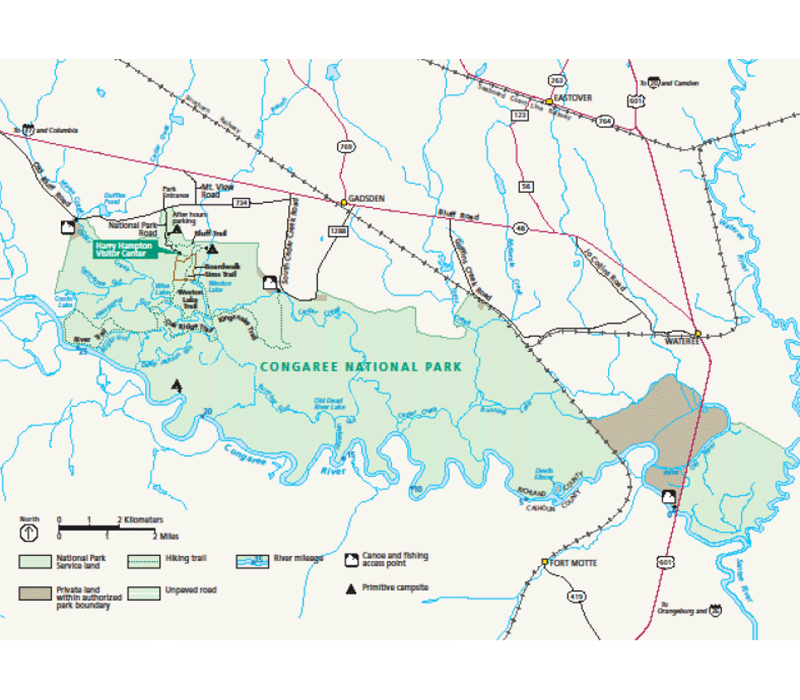
USGS Investigators: Celeste Journey
NPS Investigators: David Shelley
| 2021 |
|---|
| $49,800 |
Congaree National Park's (CONG) current Water Resources Management Plan (WRMP) was written in 1996 before Congaree Swamp National Monument became Congaree National Park (Knowles and others, 1996). Therefore, the CONG staff has identified the need to update or replace the WRMP to greatly enhance the ability of the park to protect its outstanding resources by identifying park objectives concerning water management, delineating water resources issues, identifying alternative actions and clarifying responsibilities of park staff, supporters, and the local community. While the 1996 WRMP provided a relatively comprehensive summary of the pre-1996 research findings in the CONG, a significant volume of post-1996 research at CONG has been conducted and focused on a wide range of science topics. As early as 1998, USGS has published findings on scientific research conducted in the CONG, including studies on sediment quality and associated benthic macroinvertebrate and fish community health (Maluk and Abrahamsen, 1998), methylmercury production (Bradley and others, 2009; Bradley and others, 2010), floodplain hydrology (Conrads and others, 2008; Doyle, 2009; Bradley and others, 2010), and contaminants of emerging concern (Bradley and others, 2017; 2020). Many other research groups have published findings related to aqueous biogeochemistry (Ricker and Lockaby, 2014). However, many of the associated publications to these research efforts were not readily found using the National Park Service datastore website.
Synthesis of the research findings from post-1996 studies with the long-term inventory and monitoring in the CONG is needed to provide a more accurate assessment of data gaps to focus future research. Therefore, data and information from these research efforts and remaining data gaps still need to be systematically compiled, summarized, and synthesized. USGS is providing technical assistance to CONG on literature search and review followed by compiling, summarizing, and synthesizing significant post-1996 developments.
